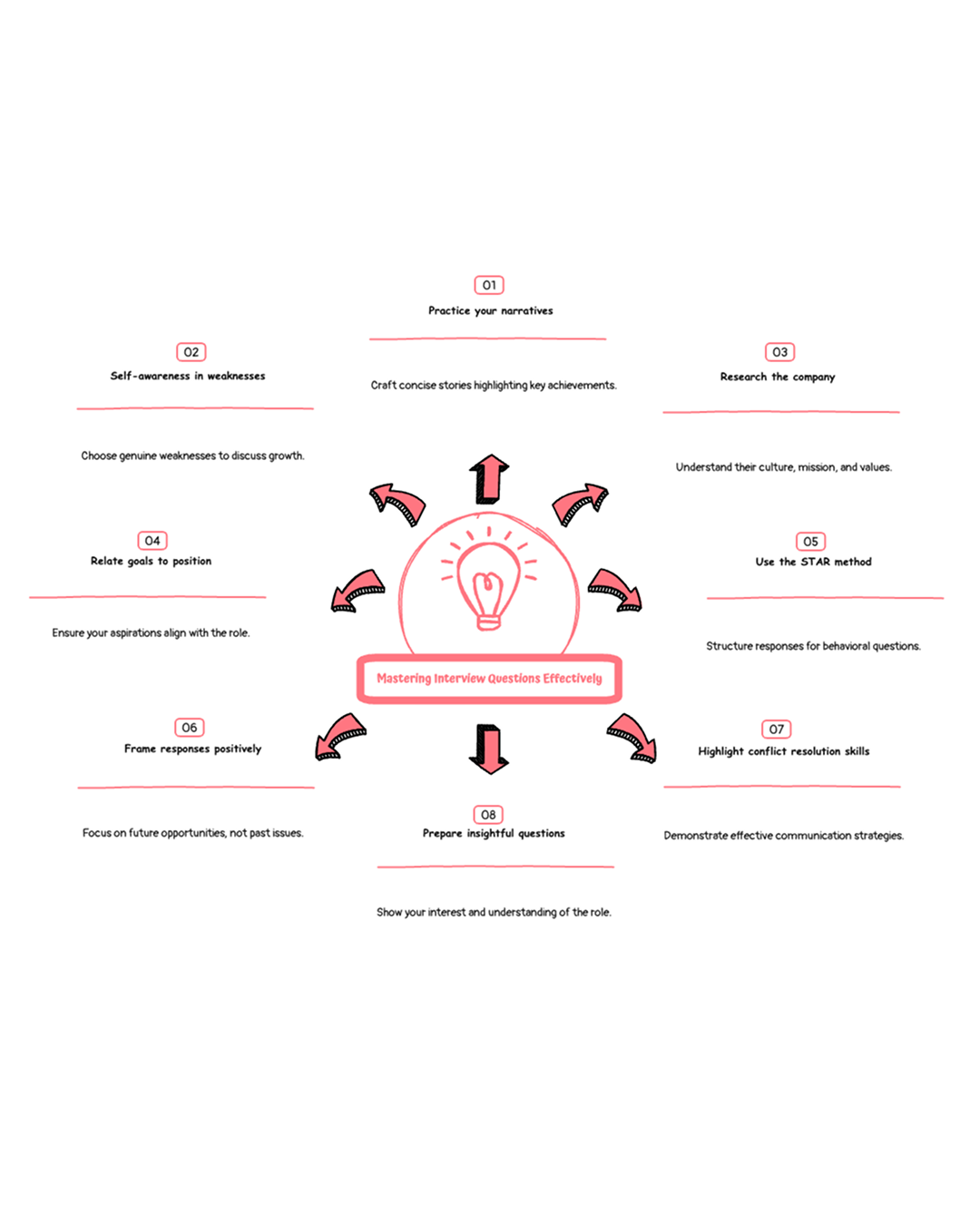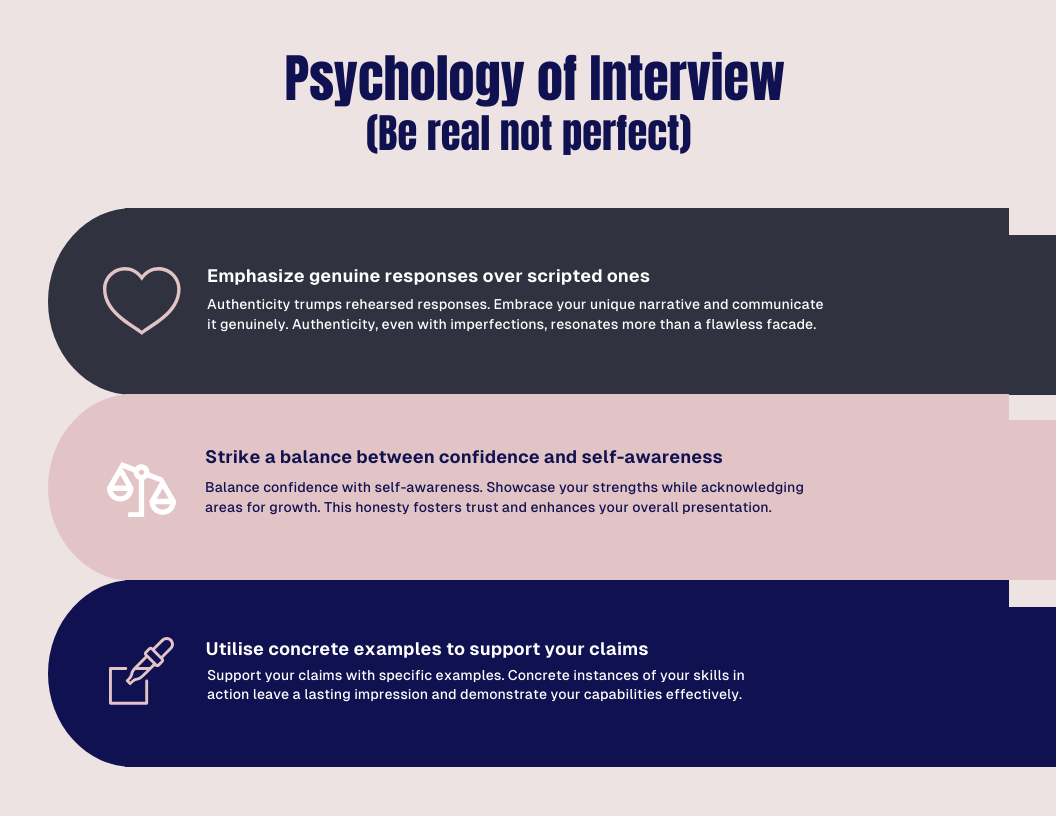ALorem ipsum dolor sit amet, consectetur adipiscing elit. Maecenas eu porta tellus. Mauris sit amet efficitur velit, vitae mollis ipsum. Cras a facilisis sem, vulputate accumsan diam. Praesent molestie, mauris nec dictum condimentum, sem metus lobortis orci, vitae auctor nunc ante et nunc. Phasellus dui ligula, hendrerit eget urna sed, porttitor sagittis libero. Nam tempor felis quis erat imperdiet pulvinar. Aenean euismod vitae nibh eu pretium. Cras quis elementum risus, nec ultrices felis. Nulla aliquet elementum erat et finibus. Quisque aliquam quam ultrices nibh congue sollicitudin
Your CV impressed them enough to secure an interview. Now comes the moment that determines whether you'll receive that coveted job offer or return to the application process. While you can't predict every question, understanding how to navigate the most common interview scenarios gives you a significant advantage.
The difference between candidates who receive offers and those who don't often isn't technical qualification—it's how effectively they communicate their value. Many highly qualified professionals struggle in interviews not because they lack ability, but because they haven't mastered the art of articulating their strengths in a compelling way.
The most significant interview mistake isn't giving a wrong answer. It's failing to understand what the question is actually assessing.

Before addressing specific questions, it's essential to recognise that interviewers rarely ask questions solely to gather information. Each question serves as a window into specific capabilities, character traits, or potential concerns.
The questions below appear straightforward but carry deeper intentions. Understanding this subtext allows you to craft responses that address both the explicit question and the underlying assessment.
What they're really asking: Can you articulate your professional narrative concisely? Do you understand which aspects of your background are relevant to this role?
How to answer effectively:
Example framework:"I'm a [your professional identity] with [X years] of experience in [relevant field]. In my recent role at [Company], I [key achievement with measurable result]. Before that, I [previous relevant experience]. What particularly draws me to this position at [Target Company] is [specific aspect of the role or organisation that genuinely excites you]."
What they're really asking: Do you have self-awareness? Can you reflect critically on your performance? Do you actively work on self-improvement?
How to answer effectively:
Example framework:"I've recognised that [genuine weakness relevant but not critical to the role]. To address this, I've [specific actions taken to improve], which has already resulted in [tangible improvement]. I continue to work on this by [ongoing development strategy]."
If you find this question particularly challenging, our article on [Why Imposter Syndrome Happens and How to Overcome It] offers valuable insights into addressing self-doubt professionally.
What they're really asking: Have you researched our organisation? Do your values align with ours? Are you genuinely interested in this role or just looking for any job?
How to answer effectively:
Example framework:"I've followed [Company's] work on [specific project or achievement] and was particularly impressed by [specific element]. Your commitment to [company value that resonates with you] aligns with my professional philosophy of [your relevant value]. The opportunity to [key responsibility in the role] while developing [relevant skill] makes this position an ideal next step in my career."
What they're really asking: Is this role aligned with your career goals? Will you stay long enough to make hiring you worthwhile? Are your expectations realistic?
How to answer effectively:
Example framework:"In five years, I aim to have developed expertise in [skills relevant to the role and industry], having made significant contributions to [department or projects]. I'm particularly interested in growing my capabilities in [area of professional development relevant to their organisation], and I see this role as an excellent foundation for that growth."
What they're really asking: How do you approach problems? Do you take ownership? Can you collaborate effectively? Are you resilient when facing obstacles?
How to answer effectively:
Example framework:"In my role at [Company], we faced [specific situation]. I was responsible for [your specific task]. I approached this by [specific actions taken], collaborating with [relevant stakeholders if applicable]. This resulted in [quantifiable results]. From this experience, I learned [specific insight] which I've applied to subsequent challenges."

While preparing answers to common questions is essential, interview success extends beyond having ready responses. Consider these psychological factors that influence interviewer perceptions:
Interviewers can sense rehearsed, inauthentic answers. Rather than memorising scripts, internalise your professional narrative and speak genuinely. It's better to be authentically imperfect than artificially polished.
Projecting confidence is important, but unfounded overconfidence can signal a lack of self-awareness. The most effective approach balances confident presentation of your capabilities with honest recognition of growth areas.
For those struggling with confidence in professional settings, understanding the mechanisms of imposter syndrome can be valuable. Our guide on Why Imposter Syndrome Happens and How to Overcome It provides insights into balancing humility with self-assurance.
Generic answers fade from memory; specific examples stick. For every major claim about your capabilities, have a concrete example ready that demonstrates that quality in action. Specificity signals truthfulness and creates memorable impressions.
The most successful interviews feel less like examinations and more like professional conversations. Approach each interview with the mindset that you're exploring mutual fit rather than simply being evaluated.
Remember that interviews are bidirectional assessments. While demonstrating your value, you're also gathering information about whether this organisation aligns with your professional goals and values. This perspective reduces anxiety and enables more authentic engagement.
At WCFC Academy, we've helped thousands of professionals transform their interview approach from anxiety-producing ordeals into opportunities for genuine professional connection. Through our frameworks and personalised coaching, we equip ambitious individuals with the tools to articulate their unique value with clarity and confidence.
Ready to transform your interview performance? Take the first step today with our free Gallup StrengthsFinder Assessment. Understanding your innate strengths provides the foundation for authentic, compelling interview responses that showcase your genuine capabilities.
“Raesent molestie, mauris nec dictum condimentum, sem metus lobortis orci, vitae auctor nunc ante et nunc ligula”



Your potential is infinite. Our mission is to activate and unleash it in the right environment.